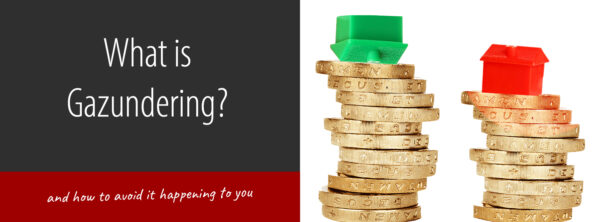Your house is going on the market for sale, you have given it some consideration and decided that you are going to carry out the viewings yourself. Great, but what is the best way to approach each viewing? What should you say and what will the viewer ask? There are many questions that need answering but, in this blog, we will be answering them for you.
So, let’s begin with the first questions that you should be asking before the viewer even gets to your door. You should be asking your agent, who is viewing and what position are they in? (A good agent will have already found this out and let you know.) Are they a first-time buyer, an investor, in rented accommodation or do they need to sell? Do they require a mortgage and if so have they got a decision in principle, or are they cash buyers?
This is important because a buyer who is going to live in your property (owner/occupier) is much more likely to view your property on a personal level whereas an investor will be viewing on a business level.
Now that you are prepared for who to expect, you can think about how you may want the viewing to go with owner/occupiers.
Start with an ice breaker
We often try and gauge how receptive the viewer is going to be, you will know within the first few minutes.
We would suggest inviting them in and trying to make small talk, find an easy ice breaker like the weather, after all being British means that the weather will always be a talking point, try:
You have picked a perfect day for viewing, it really shows the garden is a sun trap, or, it’s a bit miserable out there today isn’t it, come in and warm up.
Find common ground
Gently probe them with a few questions as you show them around the first couple of rooms.
Ask them how their viewings have gone so far? If there have been any standout houses they have seen (the fact that they are still viewing probably means they haven’t but it is a good talking point)? What is the most important feature they are looking for?
The key is to do this in a way that makes them feel comfortable, not like an interrogation, but this will also help you to gauge how their search has gone so far. This gives you a good chance to find some common ground and you can share similar experiences that you have had. It might be they mention negative features of other properties they have viewed that you can turn in to a positive about your property.
Point out your selling features
At this point you will know how receptive the viewer is going to be. If they don’t want to converse, don’t push it, some people just aren’t that way inclined. However, if the viewer is receptive then start to change your approach a little.
Hopefully you will have been able to gently probe to find out what the viewer is looking for and use this to your advantage. Rather than ask more questions, simply point out the main selling points of your property and if they mentioned what is most important to them, make sure you capitalise on that.
As an example, a big kitchen diner is a huge selling point for a family so maybe say something like:
We have had so many great family gatherings in this kitchen/family room, it is such a wonderful entertaining space
Some houses have large bedrooms, so say that in a way that is relatable, such as:
All the bedrooms are double bedrooms which has been great with having teenagers growing up in the house
Doing this will compound the positive selling points that have been mentioned in the property marketing.
Don’t forget, it is a two way street
It is really important to remember that the conversation you strike up will be a two-way conversation and the viewers will often ask you numerous questions to gauge whether your property is right for them.
They will often ask questions relating to the boiler (is it a combi boiler, when was it installed, has it been serviced?), the electrics (has the property been rewired?) and the damp course (has the property had a damp course?).
Always answer honestly, if you don’t know, that is fine.
They may also ask about your reason for selling and if you have another property to move on to. Again, be honest but if your reasons are quite personal, you do not need to disclose anything you don’t want to.
Sometimes viewers will ask questions relating to their position, for example someone with children may ask about local schools etc. Think about the type of things that your target buyer may want to know.
Building a trusting Rapport could help negotiations
Each and every person that views your property has the potential to be the buyer. By asking and answering questions, being friendly and warm to the viewers, you are building up a trusting rapport which could be key to selling your property.
If the viewers see you as warm, friendly and amenable, it may make negotiations easier for your agent, leading to a higher sale figure. It also may make them more flexible way down the line when it comes to agreeing dates (which can be difficult in a larger chain).
Every agent will have heard a vendor say ‘I wouldn’t accept their offer if they offered the asking price’ or a viewer say ‘the property was perfect but I wouldn’t do business with a person like that’. So, building a trusting relationship is a vital part of the viewing process.
What if you get an offer at the viewing?
In an extremely hot market where buyers are worried about losing the property of their dreams, it is not uncommon for them to make an offer at the viewing.
We always recommend to our vendors that, in these circumstances, they should advise the viewer that they have been told by us not to accept anything at the viewing, and ask the viewer to contact our office as soon as possible.
This ensures that we can act in your best interest, and it does eliminate any embarrassment or awkwardness on both sides.
Another reason why we suggest this is that we always dig deeper into their position once they make an offer, to make sure what they have told us is correct. Unfortunately, there are always a handful of people out there that are deliberately deceitful, and will say anything to secure your property and, when we look in to it, may not be in the position they claim.
When this happens, it leads to those negative situations like those mentioned above.
We hope that this was helpful to you but if you want to discuss anything further, please feel free to get in touch.
James, Meteor Homes







